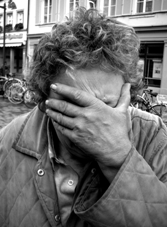Senior Alcoholism Expected to Triple in Next Decade
 Alcoholism has long been a problem for seniors and, when combined with many of the prescription medications that are often necessary in this age group, it can become a deadly issue. There are a number of stressors in this transitional stage and many seniors end up struggling with depression as well – a problem that often triggers alcoholic behavior. Unfortunately, heavy drinking makes depression worse, which can only exacerbate physical and emotional health. It’s a problem that is expected to get worse over the next 10 years.
Alcoholism has long been a problem for seniors and, when combined with many of the prescription medications that are often necessary in this age group, it can become a deadly issue. There are a number of stressors in this transitional stage and many seniors end up struggling with depression as well – a problem that often triggers alcoholic behavior. Unfortunately, heavy drinking makes depression worse, which can only exacerbate physical and emotional health. It’s a problem that is expected to get worse over the next 10 years.
Tampa Bay Online reports that about 3 million seniors in the United States struggle with alcohol and drug addiction – a number that is expected to triple over the next decade.
The problems that result from alcohol abuse and addiction among seniors are not much different than those that plague younger drinkers, but because the body becomes more fragile with age, more physical health problems tend to pile up more quickly. TBO reports that about 14 percent of hip fractures among seniors are due to mixing alcohol and prescription medications.
Alcohol abuse is the primary substance of abuse among seniors according tothe National Survey on Drug Use and Health. Unfortunately, the same survey shows that the rate of illicit drug abuse has grown by 3 percent over the past 10 years, too. This includes prescription drugs and other substances, like marijuana. The combination of the two substances can be lethal, robbing patients of their quality of life as well as their memories and physical health. Marijuana is far more potent than it was when many aging baby boomers first experimented with the drug 30 years ago, and combining it with prescriptions and alcohol can completely obliterate the patient’s ability to function.
One substance abuse treatment specialist told the Daily Tribune: “Baby-boomer parents who still think marijuana is a harmless substance need to look at the facts. Marijuana potency has grown steeply over the past decade, with serious implications in particular for young people, who may not only be at increased risk for various psychological conditions, cognitive deficits and respiratory problems, but are at significantly higher risk for developing dependency on other drugs, such as cocaine and heroin, than are nonsmokers.”
The hard part is first recognizing the signs of addiction among seniors who are going through so many different changes and then helping them to understand the risks that are inherent to abusing alcohol and drugs. Treatment is available, however, and seniors who are ready to make the changes necessary to live a fuller life without addiction can seek treatment. Call us at The Orchid to learn more about options in senior women’s addiction treatment.
